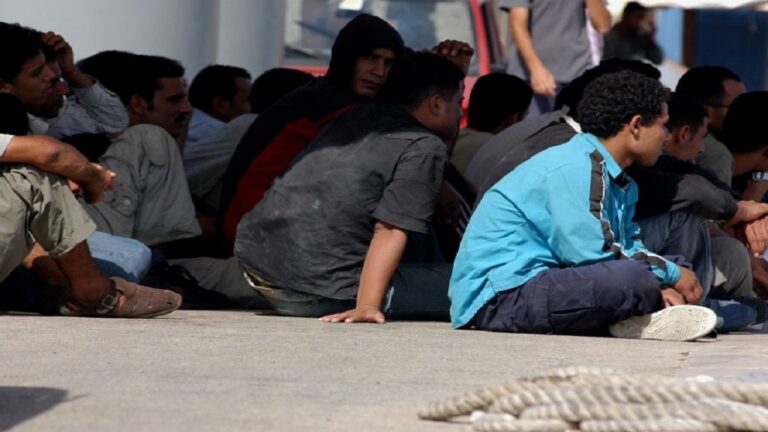A new hope for establishing protection of human rights in Libya is rising. But migrants and refugees still face critical conditions and the reconstruction of the country must address this.
Libya has been a site of conflict since 2011. However, new hopes for the country are rising. In March 2021 a Government of National Unity took office. Libya now has a unified government for the first time in years, and democratic elections are expected to be held in December.
The situation the government has to deal with is anything but easy, starting from the reason that has brought Libya to the centre of European media for a long time: migrants and refugees. The long conflict in Libya and the instability of neighbouring countries have resulted in thousands of people being forced to flee their homes. And the Libyan coasts have become a gateway to Europe, where thousands embark on dangerous journeys across the Mediterranean. Many have died during the crossing. Many others have been intercepted by the Libyan Coast Guard and forced back to Libya, mostly ending up in detention centres where they face serious violations of their human rights.
Even though a new government is now in office, the flux of migrants and refugees from Libya has not stopped. In fact, only this year 13,000 have reached Italy, three times more than in the same months last year. While European public attention is still mostly focused on the ongoing pandemic, 2021 has marked the highest number of deaths in the Mediterranean in the past 4 years.
According to Amnesty International, migrants arbitrarily detained in Libya are likely to face inhumane conditions, torture, and sexual violence. Those sent back but not detained must go into hiding and are subject to aggression, trafficking, and forced labour.
The creation of a new government “provides a vital opportunity to reset the political agenda and put human rights at the heart of it”, says Amnesty International. The organisation sent a letter to the Government of National Unity with a human rights agenda. Protecting the rights of migrants and refugees is one of the agenda’s nine points.
Libya’s internal stability and the flux of migrants are very connected. The reconstruction of the country must take into account migrants and refugees. Libya needs to become a safer place so that people are not forced to flee. At the same time, the human rights violations of migrants sent back to Libya need to be addressed.


